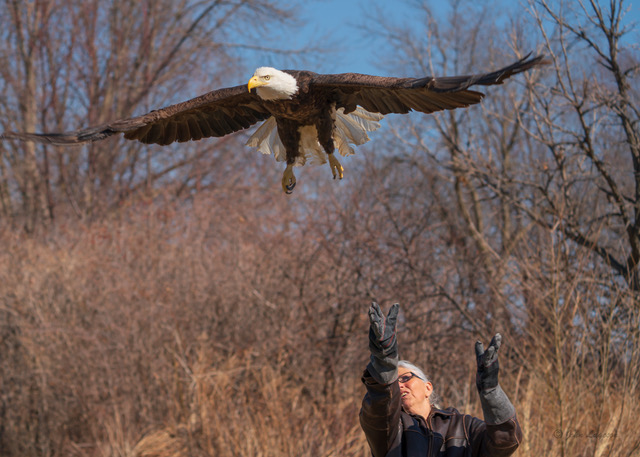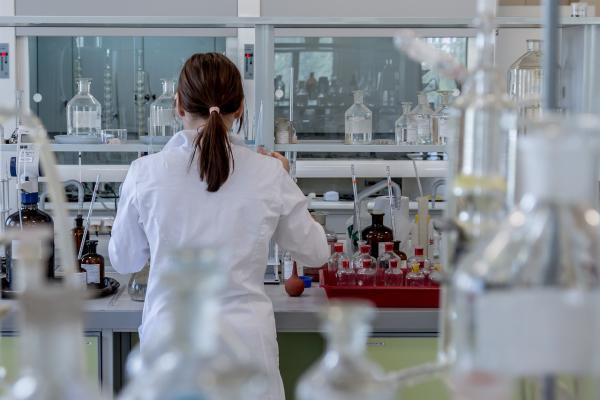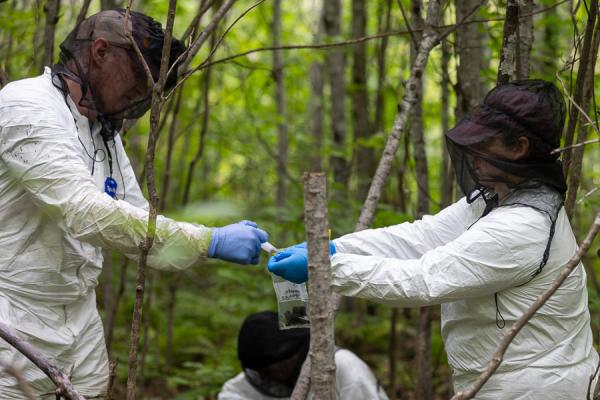Newly funded: Investigating effects of antimicrobials on the gut microbiome in raptors to improve conservation
July 16, 2021

The Raptor Center (TRC) is renowned for its treatment of birds in rehabilitation. Now, the center intends to learn what impacts that treatment has for raptor health and the wider natural ecosystem upon reintroduction, thanks to $129,000 in new state funding.
Julia Ponder, DVM, MPH, Elizabeth Miller, PhD, and Irene Bueno Padilla, PhD, MPH, DVM, will identify the microbiome from samples taken from the gut of healthy raptors captured in the wild and from injured raptors of the same species brought to TRC. They will investigate whether and how the use of antimicrobials and probiotics in captivity alter the microbiome—and attempt to better understand the emergence and spread of antimicrobial resistance (AMR) in the environment.
There’s a critical gap in AMR research this study would fill: AMR is one of the big public-health challenges of this century—and it’s well documented birds are a primary disseminator—but the impact of AMR on ecosystems remains largely understudied.
Researchers hope their findings will become a tool to tailor treatment for raptor rehabilitation—which would improve conservation. They also endeavor to shed some light on how changes to the gut microbiome may contribute to the dissemination of AMR in natural environments. The project is expected to run through June 2023.
Project funding was made possible by the Environment and Natural Resources Trust Fund as recommended by the Legislative-Citizen Commission on Minnesota Resources.



